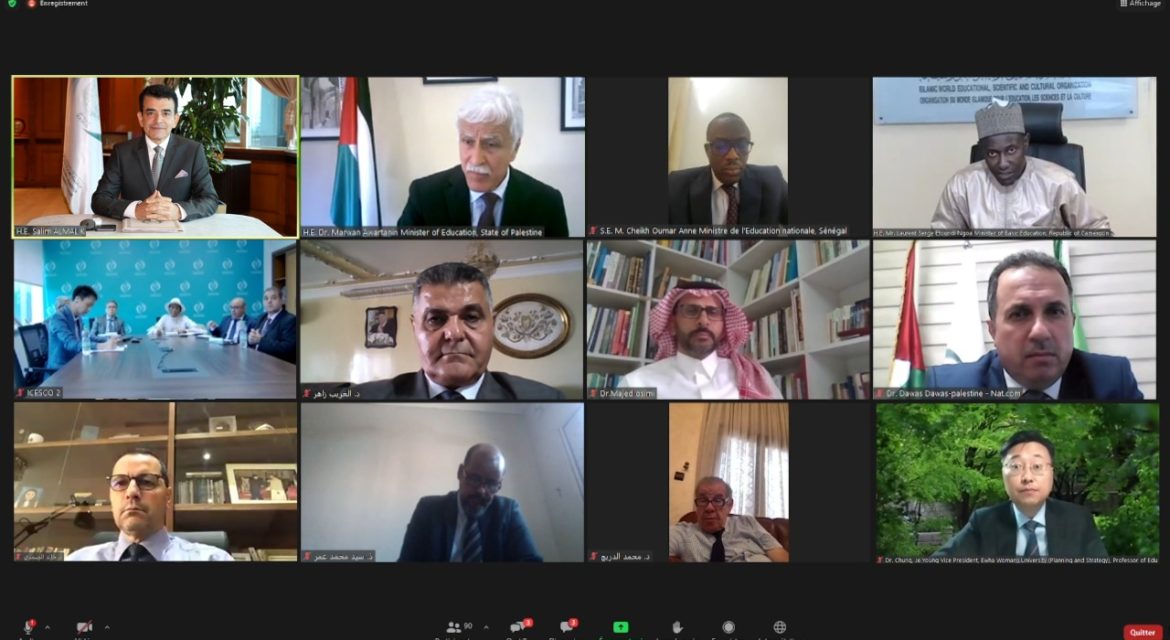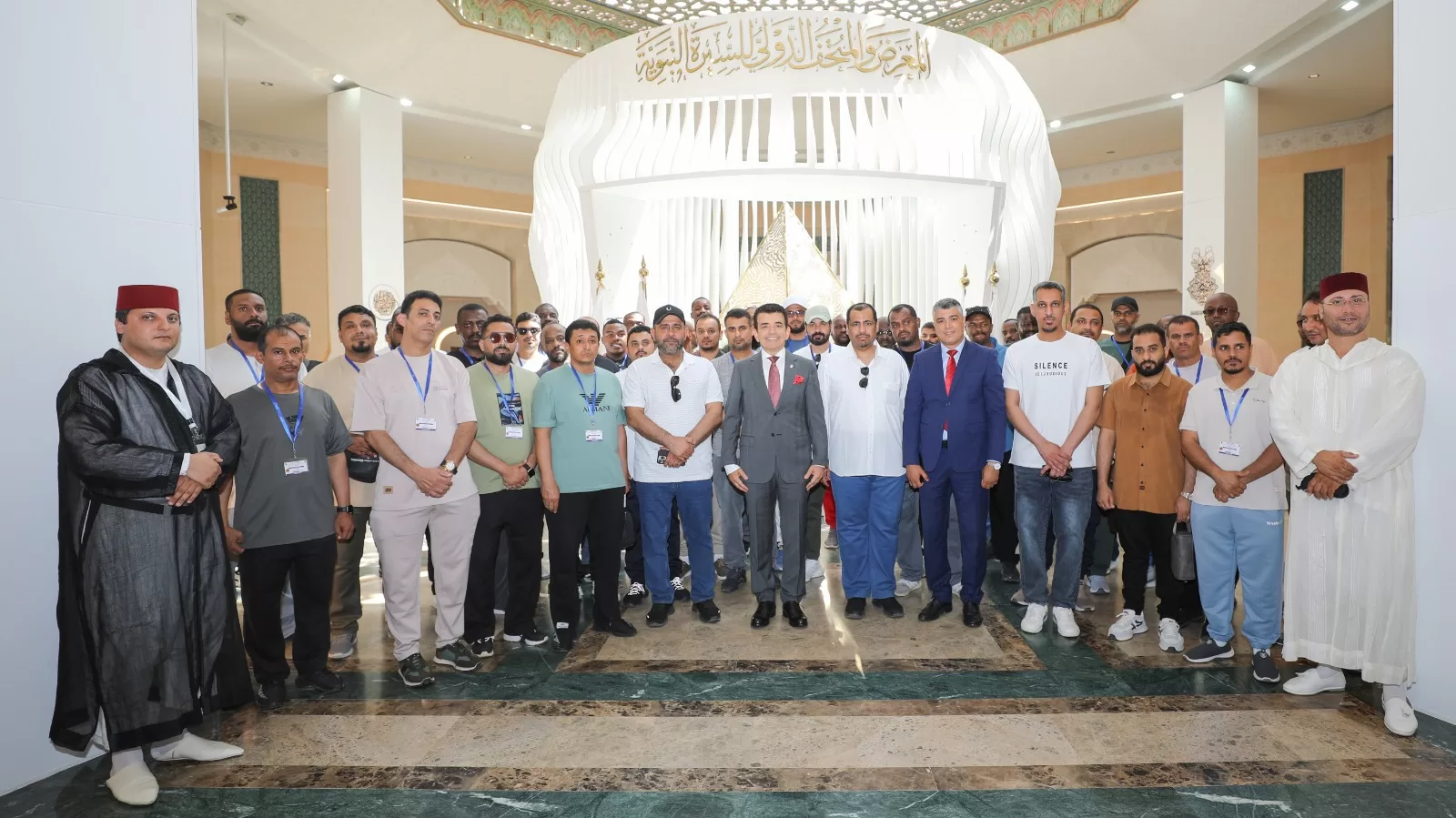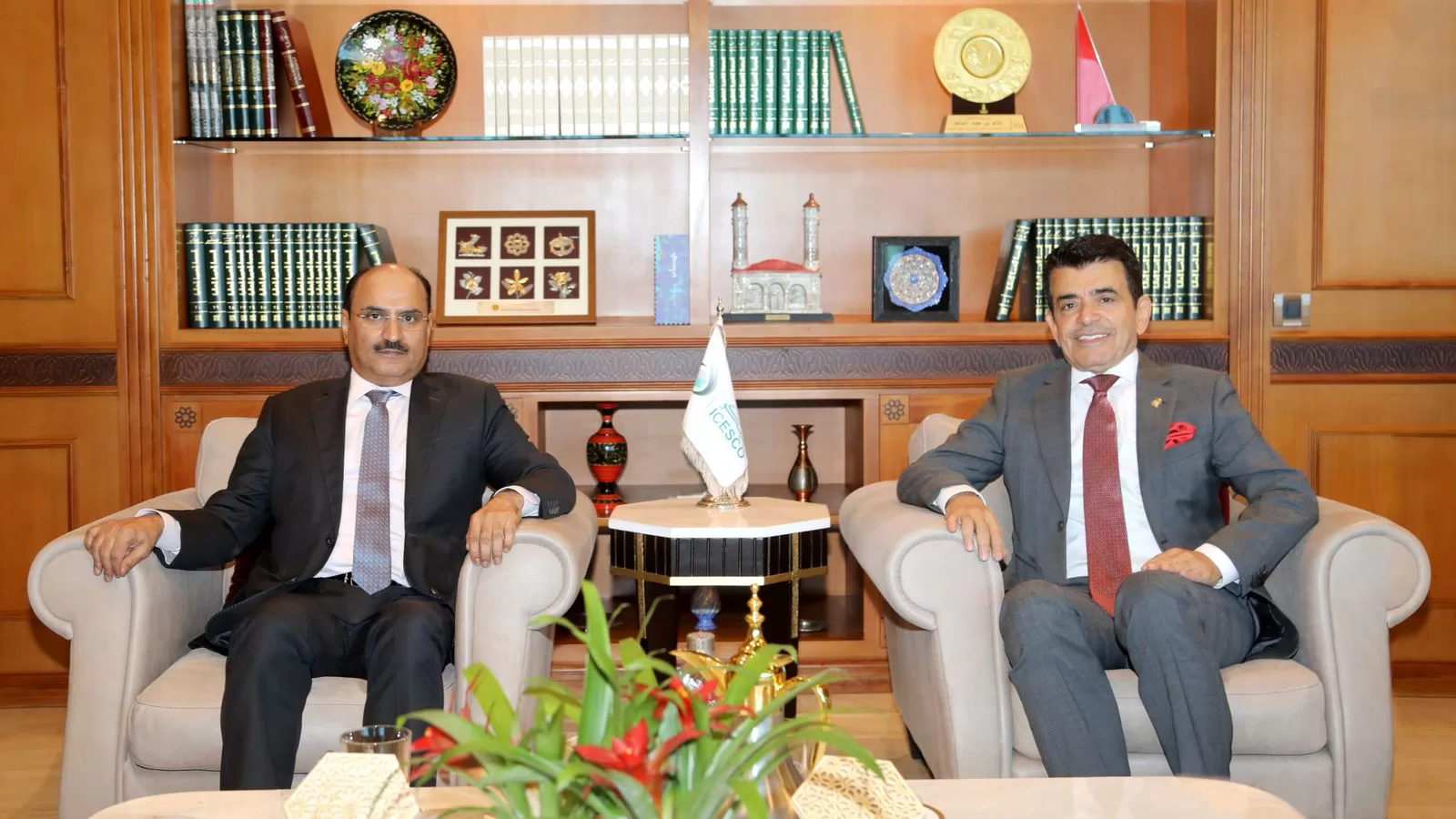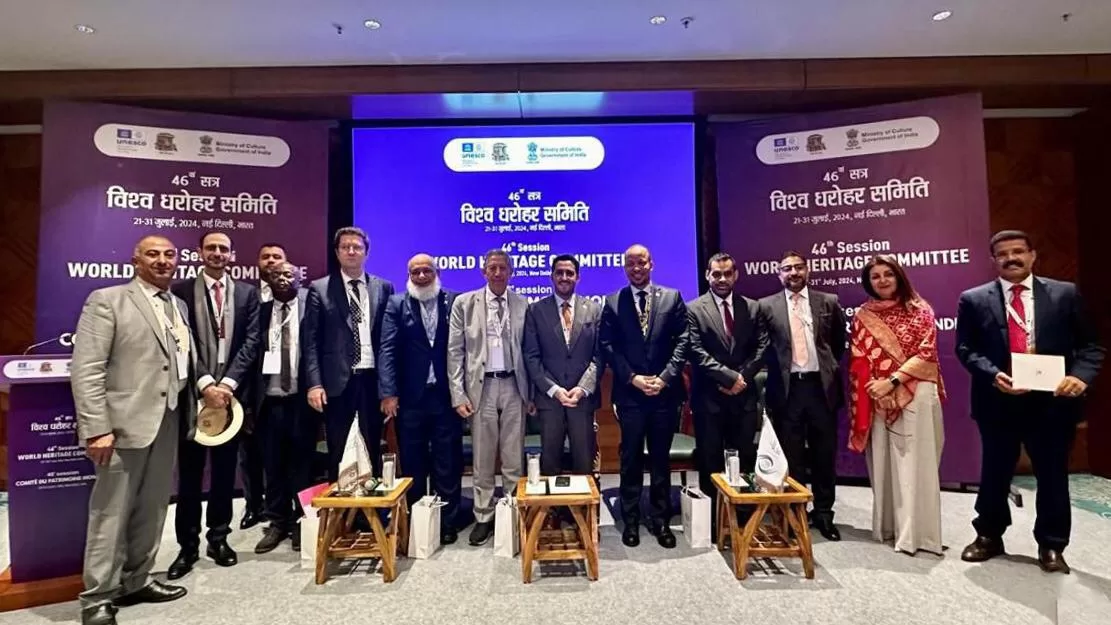
ICESCO Holds International Forum on Future of Teaching Strategies in Light of Current Developments

2 November 2022
The International Forum held by the Islamic World Educational, Scientific and Cultural Organization (ICESCO) on the future of teaching strategies in light of current developments, kicked off on Tuesday, November 1st, 2022, with the participation of a host of education ministers, experts and prominent figures from several countries, to cast light on the importance of adopting modern teaching strategies and explore the new trends in the field.
During the inaugural session of the two-day virtual forum, Dr. Salim M. AlMalik, ICESCO Director-General (DG), delivered an address, in which he noted that the Organization is particularly keen to bring excellence and creativity to the educational process in order to keep pace with developments to achieve the sustainable development goal 4 (SDG 4).
Dr. AlMalik emphasized that we must draw upon the recommendations emanating from the ‘Transforming Education Summit,’ held last September at the United Nations Headquarters, in aligning teaching strategies with current developments mainly by digitizing education, integrating creative skills into school curricula and affording greater attention to distance learning.

“Building a robust educational system requires the decentralization of education and its association with cultural influences to keep pace with developments in society. This should be coupled with the generation of funding means with greater responsiveness to local and global economic fluctuations,” added ICESCO DG.
He concluded his address by noting that ICESCO endeavors to play its part in forging effective partnerships between educational institutions in Member States and donor institutions and providing the desired expertise in developing forward-looking teaching strategies and enabling the exchange of experiences between educational systems in Member and Non-Member States.
For his part, Mr. Marwan Awartani, Palestinian Minister of Education, underlined that school is a second home for students, therefore, it is paramount to invest in teachers, understand the students’ perception of school and develop education strategies accordingly.

In her address, Ms. Mariatou Koné, Minister for National Education and Literacy of the Republic of Côte d’Ivoire, stated that it has become imperative to rethink the future of education after the COVID-19 pandemic and advance education in African countries through the establishment of open educational institutions that use modern teaching methods.
The ministerial session on teaching strategies for quality and inclusive education subsequently began, featuring the intervention of Cheikh Oumar Anne, Senegalese National Education Minister, who detailed the major steps to be followed to develop education, and those of Mr. Kouaro Yves Chabi, Minister of Secondary, Technical and Vocational Education in Benin, and Mr. Flávio Arns, Brazilian Senator, who reviewed their countries’ adopted strategies for reforming education and keeping pace with current developments.
In an address delivered on his behalf by the Ministry’s Secretary-General, Laurent Serge Etoundi Ngoa, Cameroonian Minister of Basic Education, praised the role of advanced educational methods in integrating students and providing the basic requirements for learning national languages and cultures. For his part, Mr. Ibrahim Natatou, Nigerian Minister of National Education, noted that countries have different educational systems and that crises contribute to creating inequalities in education, underscoring his country’s efforts to align education with current challenges.
The second session then started, featuring presentations in which various experts and professors tackled the different applications of modern teaching strategies and the challenges they raise.




